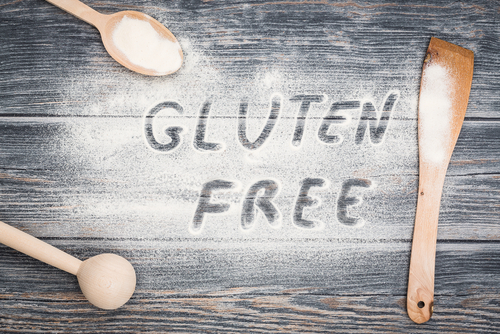Losing weight is something many people struggle with on a daily basis. 49% of adults surveyed across America stated they were using some form of weight loss techniques to help shed the pounds. Some people think trying out a gluten-free diet is the way to go, in order to achieve weight loss. Gluten-free and weight loss seem like a logical combination, but this fad can actually cause more harm than good. Learn more about how this can cause problems and why you’re better off keeping wheat in your diet if you don’t have celiac disease or gluten allergies.
It’s Possible to Gain Weight On a Gluten Free Diet
Many people think by adopting a gluten-free diet, they’re on the road to weight loss with little effort on their behalf. This is not necessarily true, at least not when it comes to long-term weight loss goals. Initial weight loss often happens when folks start cutting products that have gluten out of their diet. This is normal, and many people think they’re on the road to weight loss. In reality, there are many alternative foods that are commercially prepared, and also gluten-free and, but with the same amount of calories. If you’re choosing to use this diet as a way to lose weight, it’s not the best idea. Additionally, there is some research showing there is a link between Celiac disease and anorexia nervosa. If you have Celiac disease and problems related to body image, it’s important to consult with a professional to make sure there isn’t a bigger problem at play.
Gluten Free and Weight Loss Doesn’t Always Equal Healthy: Interfering with Diet
Although many people think cutting out gluten is a sure-fire way to a better diet, this could involve more of a crash diet than a healthy one. Crash diets involve sudden and complete cutting of calories. It’s normally better to slowly and gradually wean yourself away from the food you’re trying to avoid. Foods that contain gluten include items such as pasta, bread, and cereal, to name a few. These foods can help by providing you with the energy you need to get through the day and other beneficial side effects. For example, eating legumes and whole-grains has helped people lower their risk of inflammation. If you’re worried about these foods not being easily digestible, there are ways around that. Look for grains that are sprouted, or consider soaking or cooking foods that have gluten, in order to make them easier to digest. Check out this post on how to keep your energy level boosted all day long with the right type of diet. You need to know about the risks associated with an unnecessary gluten free diet. Although gluten-free diets are necessary for people suffering from celiac disease or other forms of extreme gluten intolerance, they are not ideal for most other people. In fact, they don?t seem to be any real benefits for people that are not intolerant to gluten. There are, however, a number of risks of following such a diet if it isn?t necessary. These risks are listed below. Greater risk of heart disease People that follow gluten-free diets tend to get far less fiber. Low fiber can have a seriously negative impact on your cardiovascular health. A study by the BJJ showed that people following gluten-free diets are at a greater risk of heart disease as a result. Of course, this is not inevitable. There are precautions that you can take to ensure that you get adequate fiber on a gluten-free diet. However, you need to be strategic about it. Higher risk of colon cancer A gluten-free diet is necessary for protecting the digestive system of people with celiac disease. If they don?t follow it, it can have a devastating impact on their digestive health. However, people that follow a gluten-free diet when it isn?t necessary could be putting themselves at a greater risk of colon cancer. This is another problem that is associated with deficiencies in fiber intake. Again, these risks can be minimized by taking the right measures to ensure you get adequate fiber in your diet. Risk of anemia Anemia is a health problem that is associated with low iron levels. People on gluten-free diets tend to get less iron, so they are at a greater risk of this problem. Fortunately, there are measures that you can take to make sure that you get plenty of iron. Eating higher levels of red meat could be an option, but you still need to make sure that you balance it properly to avoid other problems associated with high levels of saturated fats and free radicals.
Learn More About Maintaining a Healthy Diet
Maintaining a healthy diet doesn’t always mean gluten-free and weight loss in the same sentence. It’s possible to lose weight, feel good, and have all the benefits that come with a regular diet as well. As long as you watch how you’re eating and are conscious of your calories and protein sources, you can enjoy successful weight loss. If you’re curious about other types of diets, check out the keto diet.






